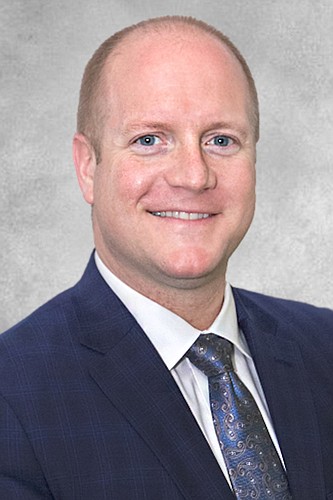- January 14, 2025
-
-
Loading

Loading

Growing up outside of Pittsburgh, the son of two teachers, David Bradley longed to be a real estate investor and entrepreneur.
“It made all the sense in the world to me and lit a fire within me,” he says.
Little did he know then that his parents’ profession would eventually come calling, in an unorthodox way.
After college, Bradley made a beeline to commercial real estate brokerage firm Marcus & Millichap in Fort Lauderdale, because he considered — and still does — the company’s training program to be “best in class.”
“I reasoned that there was no better way to learn about investing than from the people who were successfully doing it,” he says. “People like Marcus & Millichap’s clients.”
In his first year, he worked 70-hour weeks cold calling potential clients and property owners, piling up rejections. He made $3,500, scraping by with odd jobs at night and eating ramen noodles and peanut butter and jelly sandwiches.
But a year to the day after he started, he landed his first deal: A $32 million sale of an apartment building in Miami Gardens. The transaction gave him a nice commission check and something even more valuable — confidence.
Within a year or two, Bradley was regularly closing deals and mentoring new agents.
“I think I enjoyed that aspect of the job more than anything,” he says.
In 2007, Bradley was named sales manager in Fort Lauderdale. A year later, he was promoted to regional manager in Jacksonville. But when the economic storm clouds of recession formed, Bradley moved back to Pittsburgh to focus on buying distressed multifamily properties for his own account.
By 2014, he owned a portfolio of about 100 apartment units, and he’d started a brokerage company, Win Realty, that had a roster of 40 agents. But turning a profit with the apartments meant he’d need to take on many repairs himself.
“I’m probably the least handy guy you’ll ever meet,” he acknowledges. “So I had to question whether being an apartment landlord was a good career move.”
Shortly after selling the portfolio and the brokerage, he got a call from an old Marcus & Millichap colleague, with an offer to open a pair of offices for the company in Virginia.
He jumped.
A year later, another call from a former colleague took him to Marcus & Millchap’s office in downtown Chicago. There, Bradley quadrupled the size of the sales force by attracting new talent and tripled revenue.
“I’m very proud of what we accomplished there,” he says.
The efforts got the attention of Marcus & Millichap brass, too, and when Tampa regional manager Chris Travis decided he wanted to focus on brokerage, Bradley jumped again.
In October, he was named regional manager overseeing 58 agents and 75 total staff.
“Tampa is where people are moving to, from high tax states,” says Bradley. “It’s got an incredible quality of life and a lower cost of living than many places. This market is poised for more construction growth and investment.”
He has his sights set on expanding the office’s depth in office and industrial properties, and bolstering niche business in golf courses and marinas, self-storage and senior housing.
“The dynamics are in place here for us to grow, and we already have some of the best brokers I’ve ever worked with here,” Bradley says. “We already have a strong presence, and I believe we can take it a lot farther.
“Over the next two to three years, I think we’ll double the volume in our office,” he says. “I believe next year will be a very good year. If you look at the fundamentals and the demand drivers, access to capital, the lack of alternative yields, commercial real estate comes up a winner. If we can get through this pandemic with our health intact, we can plant the seeds for what’s next.”
And while he admits that getting to know his team amid the strife and social distancing brought by COVID-19 has been challenging, he’s taking a long view.
It isn’t lost on him, either, that his job isn’t too dissimilar from that of his parents’.
“A lot of what I do is I’m a teacher and a coach,” says Bradley. “It’s actually a natural fit for me.
“I’m very happy with the people and the culture we have here, so mainly I’m trying to build on that and grow and be helpful to others. I don’t have to re-invent the wheel here; we already have a good environment.”